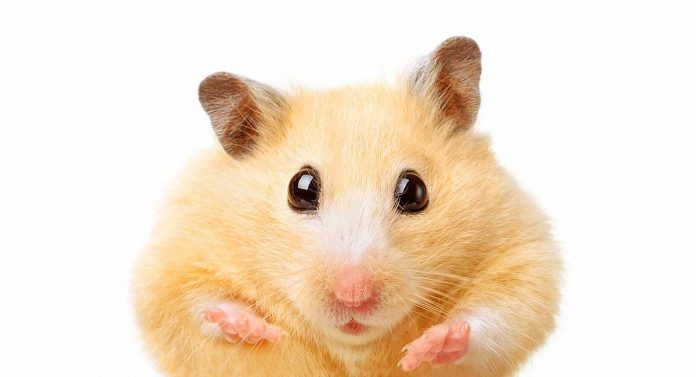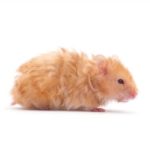Lockdown weight has been a big topic of talk in 2020 due to the fact that many of us have been filling our free time (and our faces) with food due to the widespread epidemic and the resulting reduction in our normal daily workload.
The problem is that it’s not obvious whether or not your hamster has put on any weight.
Those cute fat cheeks can make it hard to tell if your hamster is overweight or just putting away some food for later.
How to prevent your hamster from becoming overweight Excessive feeding and a lack of exercise might cause your hamster to gain weight.
Your hamster is not likely to gain excess weight if you provide it with a healthy diet and lots of activity.
It’s also useful to keep in mind that, like many other animals with a seasonal existence, hamsters change their diet and behavior accordingly.
Therefore, wild hamsters only give birth in the spring and develop a heavier coat during the winter.
When food is scarce, winter white hamsters have been seen to reduce their appetite.
Even while you shouldn’t expect your pet hamster to suddenly change its feeding habits, you should still keep an eye out for any indications that he or she is gaining too much weight or is otherwise unhealthy.
How do you know if your hamster is fat or obese?
You can tell if your hamster is carrying excess weight by simply looking at it.
They may be too heavy for their breed if they feel sluggish in your hands and have a chub except for their cheek pouch.
Oscar, our hamster, loves his food but has always been on the leaner side and has had difficulty gaining weight, so we likely have the reverse problem.
There should be about one ounce of weight for every inch of the Syrian hamster.
As a result, a mature Syrian hamster in good health would likely weigh somewhere between 4 and 6 ounces.
Other species of hamster, which on average should weigh:
- Robovorski – around 1oz
- Campbell Dwarf and a Winter White – between 1-1.5oz.
- Chinese hamster – anything from 1.5 – 1.8 oz
If you’re worried about your hamster’s well-being and aren’t sure how much they weigh, you can use a set of scales to find out.
The scale itself must be made for weighing food or mail and be able to read weights as low as 1 ounce.
If you want your hamster to sit quietly while you weigh it, you can tempt it with a treat or two and then put it in a container (the weight of which can be subtracted from the final tally).
Signs and symptoms of hamster obesity
Lethargy and a lack of interest in exercise may also be symptoms of obesity in hamsters, in addition to the more obvious visible weight gain.
The symptoms of hamster obesity should not be ignored, as the condition can progress to more serious conditions including diabetes and heart disease if not treated.
What causes hamsters to become obese?
In the wild, hamsters must cover more than a mile in a single night’s search for essentials including food, shelter, and sexual partners.
However, if a hamster’s natural home is a little cage rather than a huge desert, the hamster is more likely to become sedentary.
Your hamster won’t be motivated to run around if it’s kept in a cage and fed from a dish every day.
Your hamster may gain weight if it is not exercised on a regular basis and is provided with extra calories in the form of snacks.
Some of the ingredients in the pre-packaged muesli you feed your hamster may look healthy and nutritious, but can actually cause weight gain in hamsters, just as they can in humans.
An experiment conducted in 2017 found that hamsters fed a diet heavy in simple carbohydrates and lipids (fats) were significantly more likely to gain weight.
Unless your hamster is pregnant, she only needs a diet that contains about 4-7% fat. As a result, your hamster’s risk of obesity increases if you feed it a diet that doesn’t include plenty of fresh fruit and vegetables.
Some species of hamsters are predisposed to develop diabetes, therefore it’s crucial that we keep a close eye on the amount of fat they consume.
You may notice that, just like you, your hamster’s weight changes with the seasons.
Hamsters tend to put on weight when the days become shorter and there is less sunlight available.
It’s normal for your hamster to act this way as a result of his body producing more melatonin in anticipation of the upcoming winter.
When summer comes around again, hamsters typically stop overeating and return to their usual weight.
Last but not least, if you have a female hamster and you see that she is putting on weight in the middle, you should make sure you aren’t mistaking this for pregnancy.
If your female hamster is active and eating well, and you notice a rapid weight gain, it’s worth checking with your vet to make sure the pregnancy isn’t to blame.
Dangers of Obesity
Similarly to humans, hamsters can experience a variety of health issues when they gain too much weight.
Little Hammie’s health is at risk if he is overweight. He may get heart difficulties, diabetes, and liver concerns.
How to treat a fat hamster
The best course of action is to train your hamster to eat well from the get-go rather than trying to fix the problem later on.
If it’s too late and your hamster is already on the plump side, you might want to try switching him or her over to a diet heavy in fresh greens instead of fatty goodies.
Consult your vet before putting your obese hamster on a low-fat diet, although it may be necessary.
Offering your hamster a wide variety of stimulating activities and stimulating toys is another fantastic approach to maintaining it in good shape.
It might be anything from a hamster wheel with tubes to a constructed tunnel and a climbing frame.
Handling your hamster on a regular basis not only gives them a break from their monotonous cage life but also helps them stay fit and healthy.
Proper Hamster Nutrition
As for Hammie’s primary diet, he can eat whatever is available on the market. Pellets are a fantastic option.
Many popular seed mixes, however, contain high-calorie nuts and seeds. Hammie gets to pick out his favorite parts, which are usually the fatty ones.
Hammie needs healthy vegetables and fruits to complement his main meal. Pick only foods that are appropriate for hamsters.
The list includes such delicacies as junk food, sugary meals, fried foods, chocolate, coffee, and alcohol.
Exercising Your Hamster
Get an exercise wheel for Hammie. Pick one without wire wheels to protect your pet’s delicate paws.
You can also get your hamster some exercise by giving it a runabout, or hamster ball, to play with.
Get one that won’t hurt your hamster and is just right for its size, age, and breed.
You should always keep an eye on your pet if he’s outside.
You don’t want Hammie accidentally sliding downstairs!
What To Do If Your Hamster Is Obese
Consult your veterinarian about the best diet for your overweight hamster.
Never put Hammie on a crash diet; doing so could be fatal.
Weight loss in hamsters, like that in humans, should be gradual to prevent health problems.
Conclusion
Hamsters typically don’t overeat and are big fans of nighttime exercise.
Therefore, preventing your hamster from getting overweight can be as simple as giving it a healthy diet to power its evening activities.
You should take your hamster to the vet if you are worried about its health.






